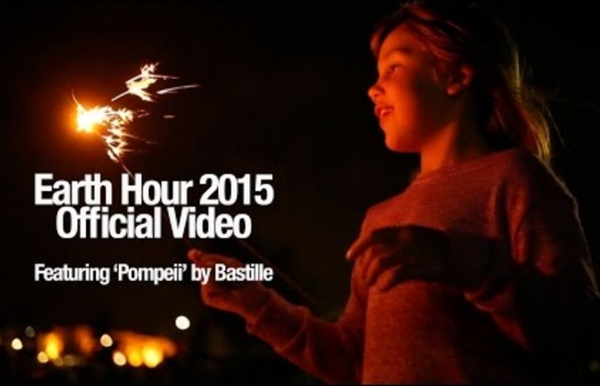



http://www.youtube.com/watch?v=XxIMib4e8f8
Related: 3E - HANDLE WITH CARE • EnvironmentWhy must we protect the oceans? - Vidéo Langues vivantes More than half the planet is covered by oceans. There’s the Atlantic, the Pacific and the Indian Ocean. But to be exact, we should talk about a World Ocean. Because all the oceans are linked, and share the ocean currents that go around the world. In the oceans there are hugely valuable natural resources such as fish or oil. Cork's climate-rapping schoolkids go global as they feature on huge American site - Pupils at a small primary school near Bantry have gone global with their brilliant rap video on tackling climate change. The kids at Cappabue N.S. - a mixed, two-teacher school in the Shehy Mountains north of Bantry - made the video with the help of Cork producer Garry McCarthy of award-winning Cork City based music collective GMC Beats. The video, which was first featured on CorkBeo, has gotten such a reaction since appearing online that it is now getting attention in America. NowThis, a huge news site in New York with 14 million Facebook likes and 2.5 million Twitter followers, featured the videos on their social media channels. Over 900,000 people viewed the rapping clip with more than 15,000 clicking the like button on Facebook for the kids.
How do we protect life in the oceans? - Vidéo Langues vivantes There are 5 oceans on our planet: the Pacific, Atlantic, Indian, Arctic and the Antarctic… all linked to each other. They form the World Ocean. This Ocean represents three quarters of the surface of our planet and is home to a wide variety of species. But for 50 years now, with the increase in pollution and fishing, ecologists have been sounding the alarm. Associations and countries have set up 4 protective measures: limiting fishing, preventing oil spills, protecting fauna and flora, and creating Marine Protected Areas. The Convention for the Conservation of Antarctic Marine Living Resources has now decided to create the biggest Marine Protected Area in the world!
Wallace & Gromit's creators make new animation to try to save the seas By Layal Liverpool Turtle Journey tells the tragic story of a turtle family travelling home through an ocean under growing pressure from climate change, plastic pollution, oil drilling and overfishing. The short animation, which you can watch below, was produced by Aardman – the creators of Wallace & Gromit – and campaigners Greenpeace to highlight the plight of the world’s oceans. Climate change is already affecting the habitats of sea turtles. Changing ocean currents are damaging the coral reefs some turtles rely on to survive, while rising seas threaten to destroy their beach habitats. Plastic, which has been found in hundreds of marine species, poses another danger.
What is the 8th continent? - Vidéo Langues vivantes This continent is very different from Africa, America, Antarctica, Asia, Europe and Oceania! It wasn’t formed millions of years ago but only a few decades ago. How? Because of waste produced by human activity! Garbage is carried by rivers, or comes from beaches and boats. 'I found 300 Lego flippers on the beach' News BBC News Navigation Sections Previous Next Media player Media playback is unsupported on your device
Are apes really going to disappear? - Vidéo Langues vivantes Yes it’s true. If nothing changes, in 50 years, apes could well have disappeared from the surface of the Earth. Right now, over half of ape species are in danger of extinction. Three quarters have already seen their populations dwindle: 4 of the great ape species are already close to extinction. If apes disappear, it’s mainly because their habitat, the forest is disappearing. Indeed, wild forests are being destroyed by man all over the planet. Why are ice fields melting? - Vidéo Langues vivantes Ice all around the world is melting due to the effects of global warming. The ice we are talking about here can be glaciers and the Arctic and Antarctic ice caps. Mountain glaciers and what we call “permanent snow” is slowly melting. As the planet warms up, the ice cap breaks and melts more quickly. Scientists are worried that the more ice melts in summer, the harder it is to freeze again in winter.
Alison Teal's Powerful Message on Plastics Alison Teal, TV star and eco-adventurer filmmaker, recently traveled to Indonesia to work with the conservation group Orca365 and was stunned to see how the global plastic epidemic is impacting some of the world’s most naturally beautiful locales. “Growing up and working in places like Bali, the Maldives, Mexico, and Hawaii, I’ve watched plastic pollution plague these pristine places,” she told The Inertia. The short clip above is just a fraction of what Teal observed on her trip but it also proffers a few strategies that anyone and everyone can incorporate into their daily lives to wean off of single-use plastics. Advertisement This video file cannot be played.
12 climate solutions from children - Vidéo Langues vivantes To reduce pollution, we use public transport or share the same car. We use bikes, scooters or walk for short trips and only use cars for long trips. We take care to switch off lights and unplug electrical devices that are not being used. To save electricity, we don’t switch on lights during the day and we open the shutters. We choose to eat seasonal fruits and vegetables. Otherwise, they come from heated greenhouses or are carried by truck or plane which consumes a lot of energy.